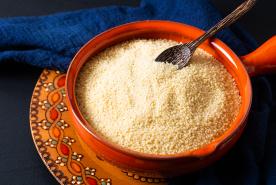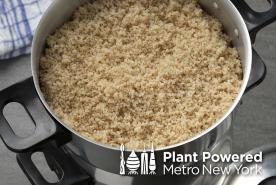Last updated: February 01, 2023
Medically reviewed by: NKF Patient Education Team
Potassium is vital for body functions, but imbalances can be harmful, especially with kidney disease. High or low levels may cause symptoms like muscle weakness or heart issues.
About Potassium
Your kidneys help keep the right amount of potassium in the body. Hyperkalemia is the term for when the potassium levels in the blood are too high. Hypokalemia is the term for when the levels are too low. Both situations can cause health problems. In kidney disease, the body has trouble removing extra potassium from the blood. This can cause potassium levels to rise and lead to serious health problems. People with kidney disease are also at risk for low potassium, especially during earlier stages of kidney disease.
Hyperkalemia is the term for when the potassium levels in the blood are too high. Hypokalemia is the term for when the levels are too low.
Causes of Imbalance
Causes of HIGH Potassium (Hyperkalemia) | Causes of LOW Potassium (Hypokalemia) |
|
|
Signs and Symptoms
Signs and Symptoms of HIGH Potassium (Hyperkalemia) | Signs and Symptoms of LOW Potassium (Hypokalemia) |
Hyperkalemia does not usually cause symptoms. | Hypokalemia does not usually cause symptoms, especially if it is a small decrease in the potassium level. |
If symptoms do appear, they may develop slowly over many weeks or months and are usually mild and non-specific, including:
| If symptoms do appear, they may develop slowly over many weeks or months and are usually mild and non-specific, including:
|
Symptoms are more common if the hyperkalemia comes on suddenly and causes very high levels of potassium. In this case, you may experience:
| Symptoms are more common If the hypokalemia comes on suddenly and causes very low levels of potassium. In this case, you may experience:
|
Sudden or severe hyperkalemia and hypokalemia are both life-threatening conditions that require immediate medical care. If you have symptoms of either, call 911 or go to the emergency room. | |
Sudden or severe hyperkalemia and hypokalemia are both life-threatening conditions that require immediate medical care. If you have symptoms of either, call 911 or go to the emergency room.
Results

- Higher than 6.0: You are in the DANGER zone for very high potassium (severe hyperkalemia)
- 5.1 to 6.0: You are in the CAUTION zone for high potassium (hyperkalemia)
- 3.5 to 5.0: You are in the SAFE zone
- 2.5 to 3.4: You are in the CAUTION zone for low potassium (hypokalemia)
- Less than 2.5: You are in the DANGER zone for very low potassium (severe hypokalemia)
High Potassium (Hyperkalemia)
Low Potassium (Hypokalemia)
Follow your treatment plan carefully, especially if you have diabetes, kidney disease, heart disease, or other chronic conditions. Following your treatment plan can help you keep your potassium levels in the goal range. If you are on dialysis, be sure to get all the treatments or exchanges prescribed to you.
Resources
NKF Council on Renal Nutrition CKD Kidney Dietitian Directory
https://www.kidney.org/ckdrd
NKF Your Guide to Potassium
Download the Potassium guide












